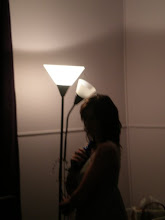Wikipedia is a revolution in organising online content in an easy-to-navigate format. Because it implements open source, there is constant speculation about the reliability of its content. Wiki (as it is affectionately known) is placed under the social software umbrella (Bruns, 2008, 102). Wiki is a primary example of produsage, people are able to create a new entry or update an existing one, which millions of people have access to. Wiki adheres to Bruns' second principle of produsage: fluid heterarchies organised through ad hoc meritocratic governance. This concept is explored in my previous blog:
2. Fluid Heterarchy, ad hoc meritocracy. In open source contributors grow in the community through their esteem and influence on the project. There is no set dictator for the duration of the project. Leaders are fluid and ever changing according to their abilities and the merit of their contributions. In closed source the production development team is subject to traditional hierarchical structures. There is an appointed leader for the duration of the project and each employee has set individual tasks to complete.
As stated by Jenkins (cited in Bruns, 2008, 108), "any knowledge that gets posted can and most likely will be revised and corrected by other readers." Though it has no set hierarchical structure, Wiki remains a popular source of information, especially for university students.
A new search engine, Powerset, has recently been released, allowing questions, phrases and topics to be explored. Answers can be broken down into facts or scan summaries, and searches Wikipedia entries and other reputable sources (such as Freebase). Check this one out...
Reference
Bruns, A. 2008. Wikipedia: Representations of Knowledge in Axel Bruns, Blogs, Wikipedia, Second Life, and Beyond: From Production to Produsage. New York: Peter Lang. p 101-136.
Subscribe to:
Post Comments (Atom)

2 comments:
Let me be the first to textually say this was an informative blog. Concerns about reliability when open source initiatives are involved have permeated every debate, thought and objective inquiry since the inception of open source.
If you’ll allow me to appropriate your quote by Jenkins (cited in Bruns, 2008, 108), "any knowledge that gets posted can and most likely will be revised and corrected by other readers", this leads to a degree of trust among those sourcing information. Of course it would be vapid to approach any information (especially open source) without your critical thinking helmet but it is just astounding just how reliable and accurate said information can be.
I recently and inadvertantly came across a testament by evolutionary biologist Richard Dawkins during a public discussion with physisist Lawrence Krauss. Dawkins (2008) attested to the veracity of wikipedia by providing an example. He recounted previously having retreived scientific articles from wikipedia (of which he was an expert) and was amazed by their veridicality.
In conclusion it is amazing that the open source paradigm of wikipedia is for the most part reliable and precise. Let’s hope for the benefit of university students everywhere, wikipedia will be considered an academic resource in future. Viva la Wiki!
Aurora Forum. Richard Dawkins and Laurence Krauss. March 9, 2008. http://richarddawkins.net/article,2472,Richard-Dawkins-and-Lawrence-Krauss,RichardDawkinsnet
Bruns, A. 2008. Wikipedia: Representations of Knowledge in Axel Bruns, Blogs, Wikipedia, Second Life, and Beyond: From Production to Produsage. New York: Peter Lang. p 101-136.
Wikipedia is a source of much debate in my mind. On one hand, I understand that the information is continuously improved by thousands of users over time, therefor that must be better than looking at the work of one academic. On the other hand, why should I trust these users and even if any wrong information is corrected, how am I to know that I am not accessing the information during the time that it is incorrect.
I had some friends who modified a page on Wikipedia, just for their own amusement. They added some ridiculous information about another friend - and it remained their for months. John Mclay, in response to your blog, mentioned that he hopes that Wikipedia will be considered an academic resource in the future. As a student I can see where he is coming from - but anywhere that my idiotic friends can add random untrue information and have it unchanged for a couple of months won't be considered an academic source in my mind - no matter how many academics contribute!
Post a Comment